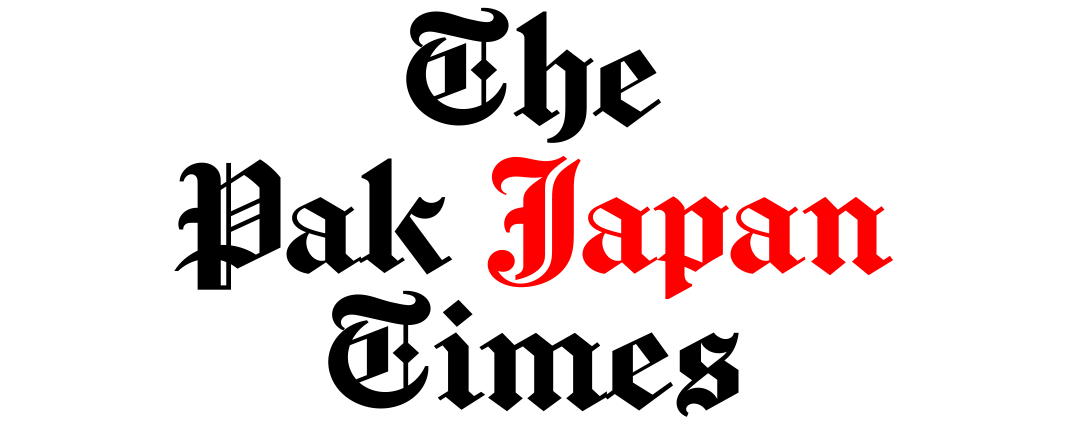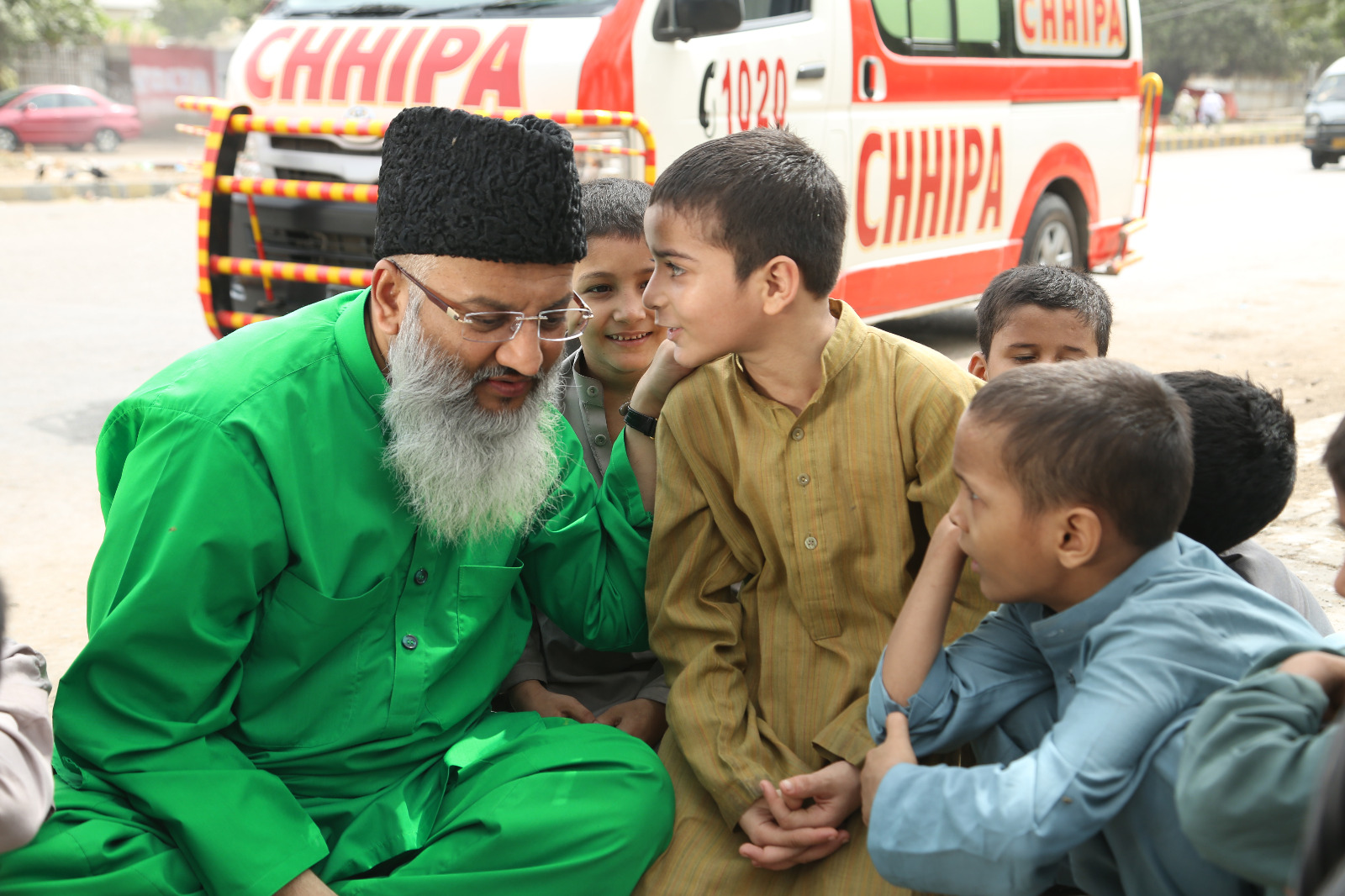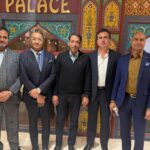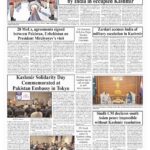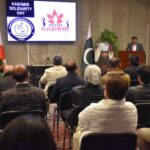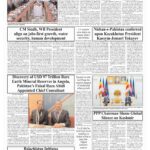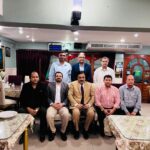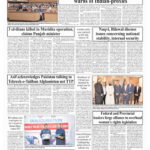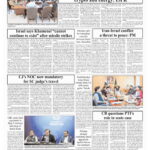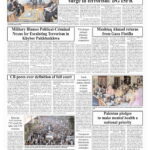By Muhammad Irfan Siddiqui
When Muhammad Ramzan Chhipa was born in Karachi on October 9, 1971, few could have imagined that he would become one of Pakistan’s enduring faces of compassion. For over four decades, clad in his trademark green kurta and white slippers, he has built not just a welfare organization but a culture of organized mercy. Today, Chhipa Foundation is a nationwide relief network, and its founder a symbol of speed, dignity, and resilience.
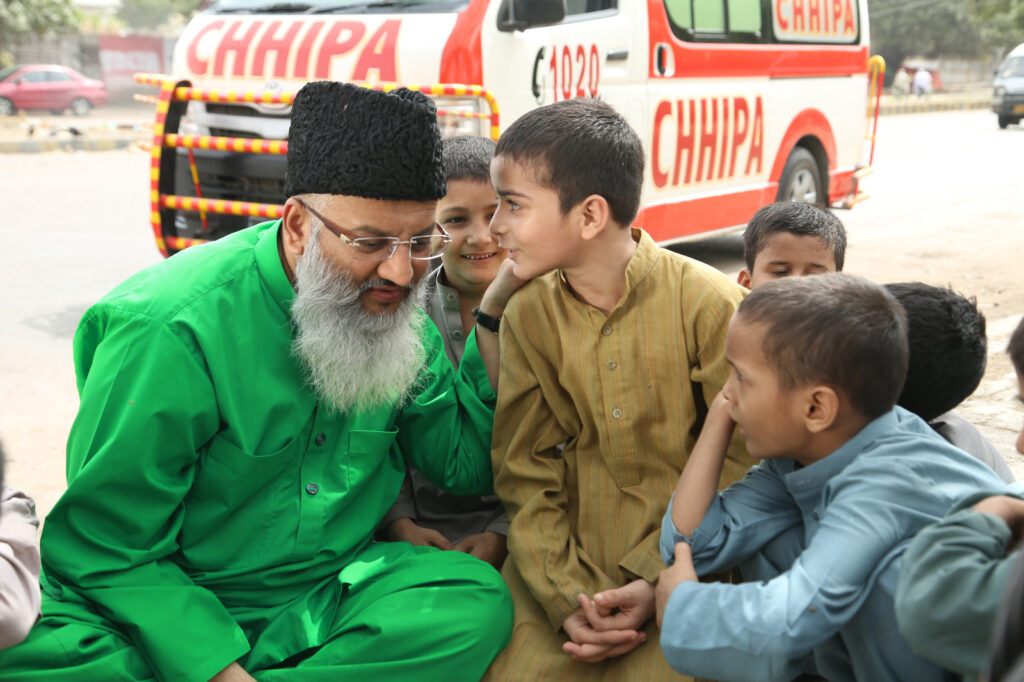
The First Lesson in Giving
Ramzan’s journey began in childhood. His mother, Maryam Chhipa, would press five rupees into his hand for snacks and instruct him to share with classmates who had none. That small act instilled in him a lifelong discipline: charity is not an occasional gesture, but a daily responsibility. Born into the historic Chhipa community—renowned textile printers and supporters of Pakistan’s freedom movement—he inherited a tradition of hard work and service. But a national tragedy converted instinct into mission.
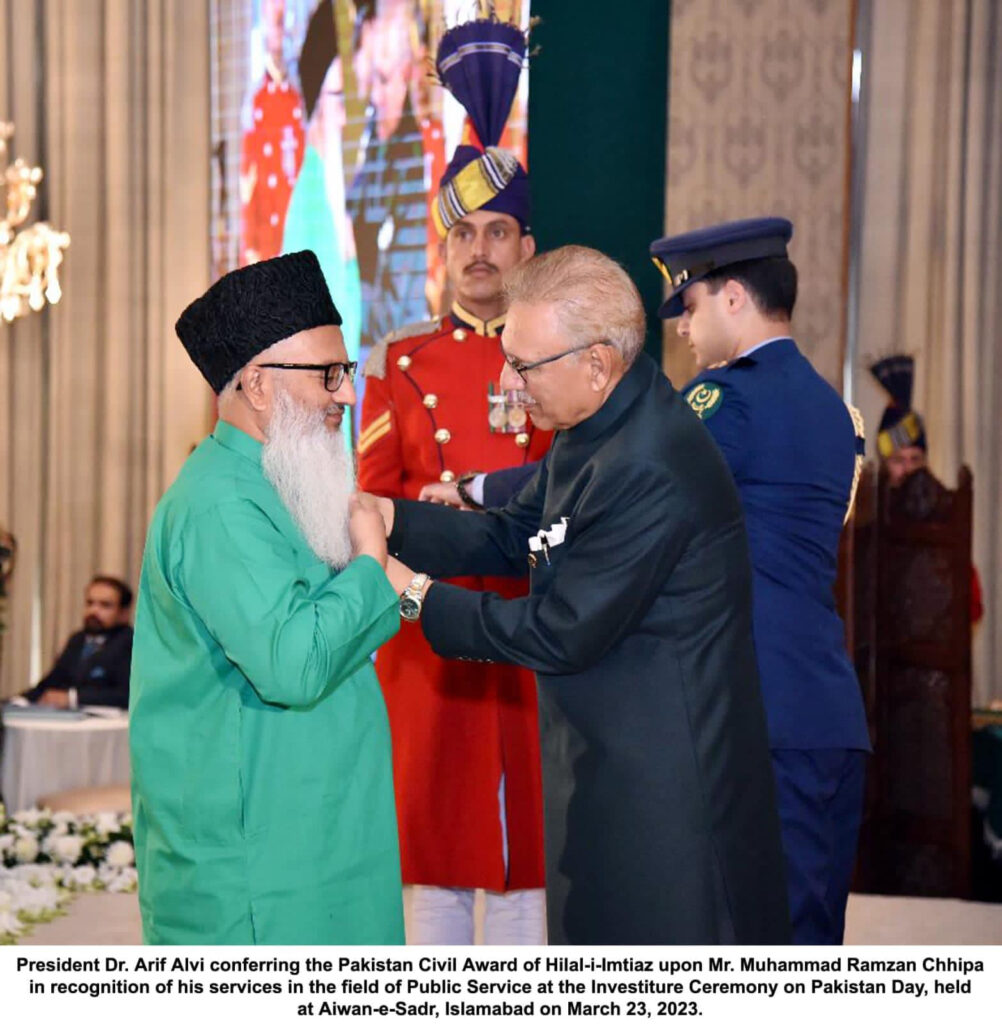
The Night That Changed Everything
On July 14, 1987, twin explosions shook Empress Market and Bohri Bazaar in Karachi. The 15-year-old Ramzan rushed to Civil Hospital, donating blood and gathering supplies for the injured. What haunted him most was not the violence alone but the lack of ambulances—victims were ferried in rickshaws and pushcarts. That night, he vowed to create a system where speed could mean survival.
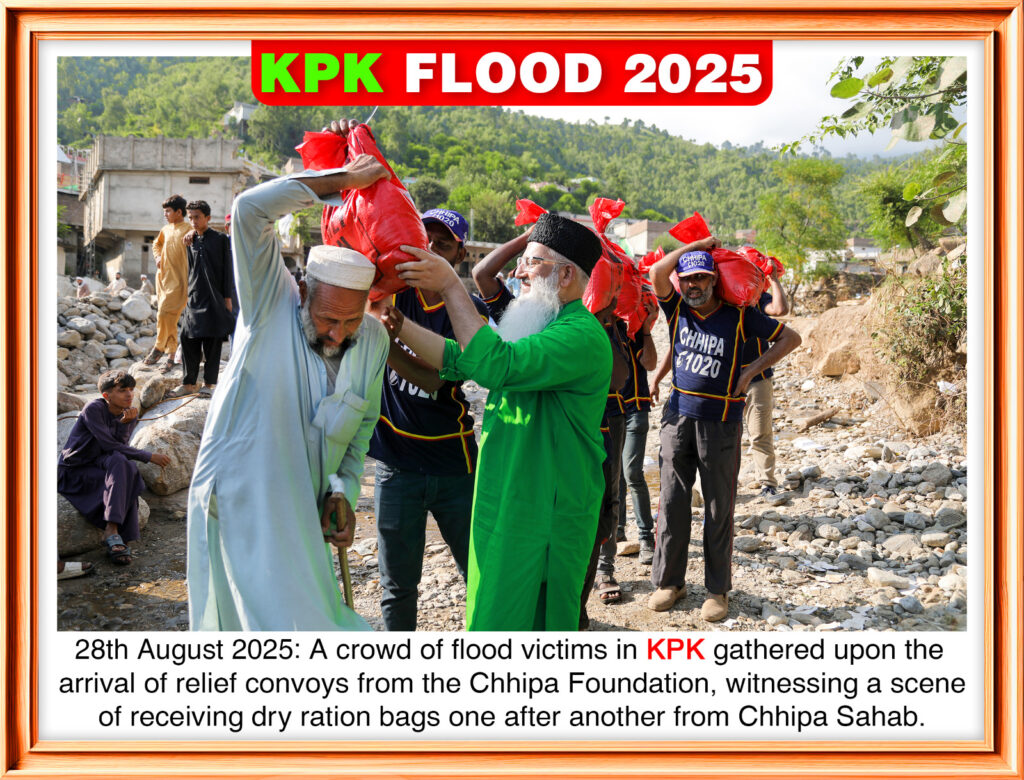
Exactly one month later, on August 14, 1987, he registered the Chhipa Welfare Association and parked a single, battered ambulance outside Civil Hospital. He drove it, answered calls, and even bathed unclaimed bodies. Slowly, volunteers and donors joined. “Loag saath aatay gaye, aur karvaan banta gaya”—people kept joining, and a caravan was formed.
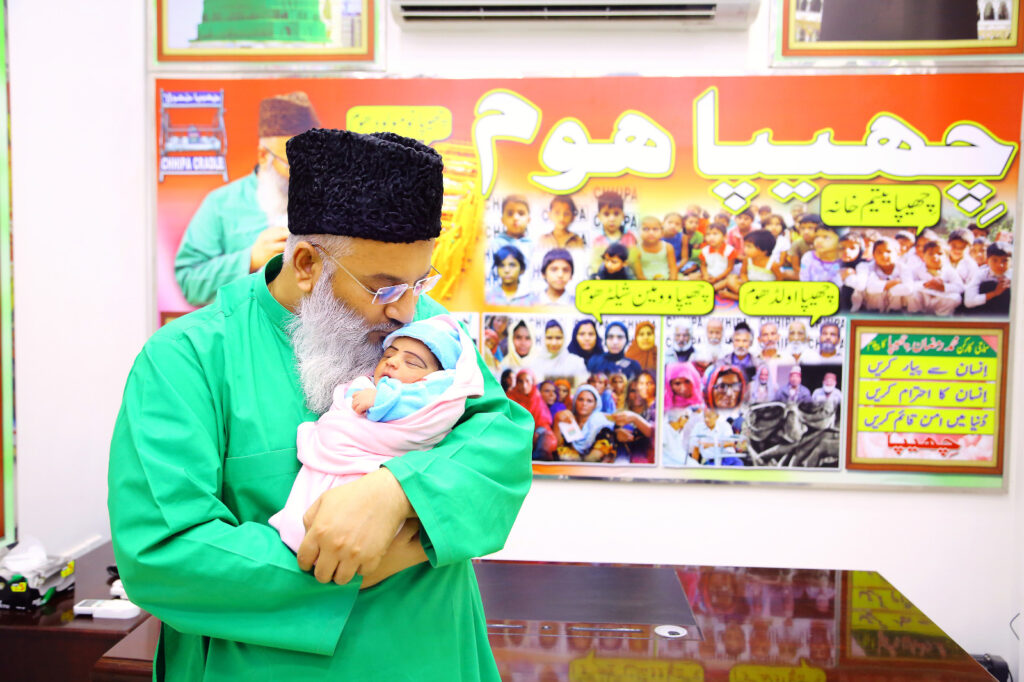
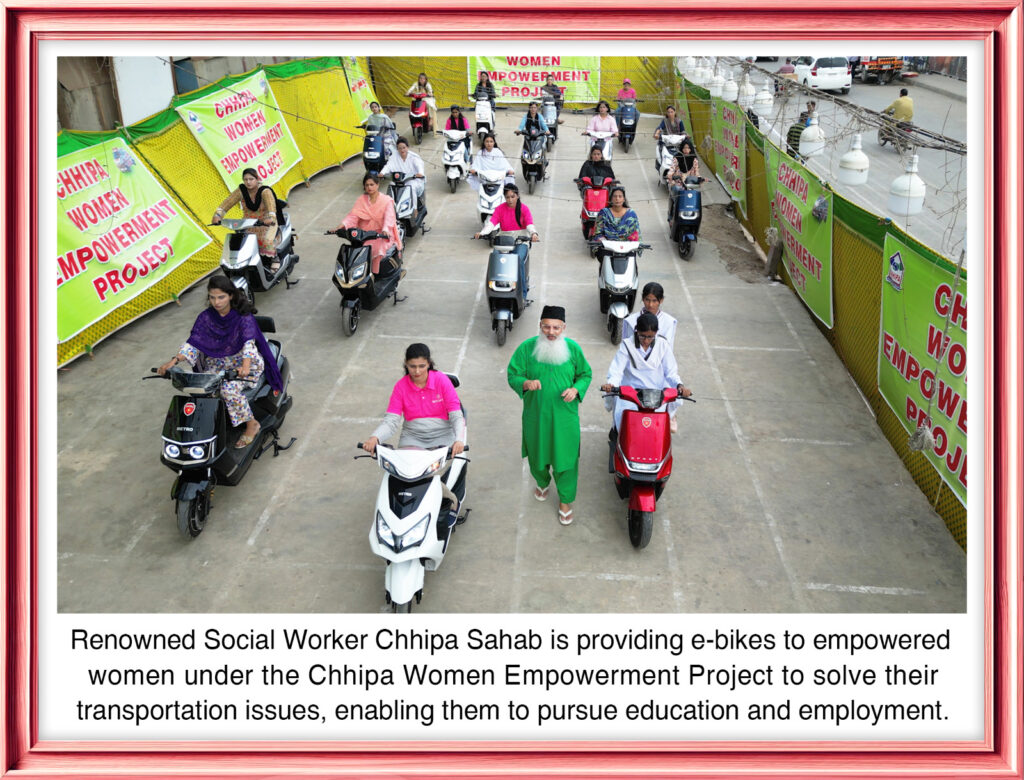
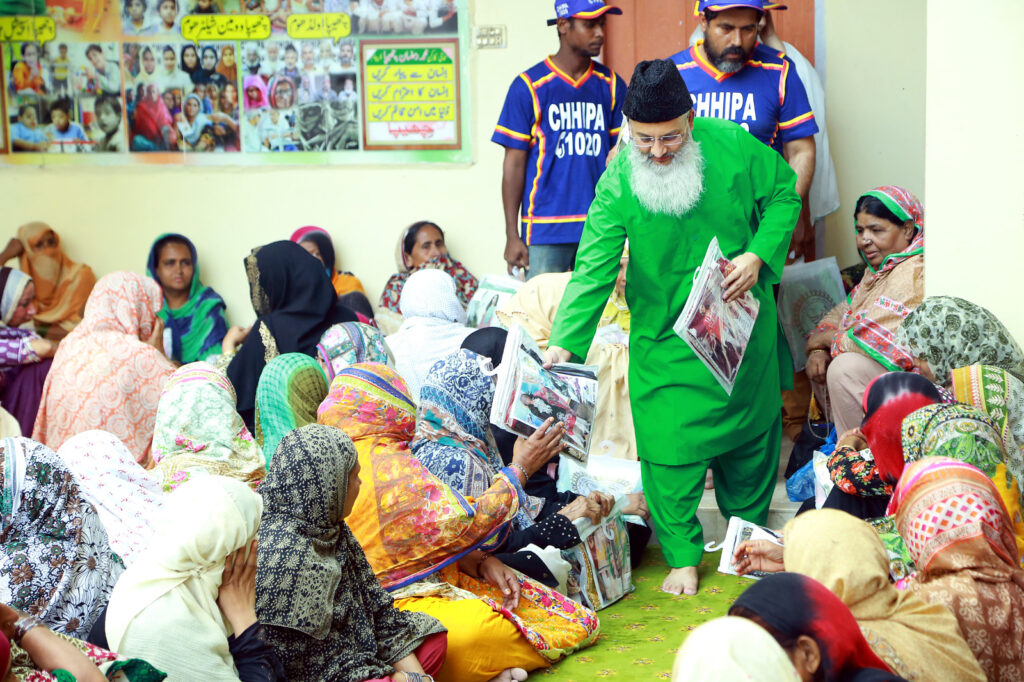
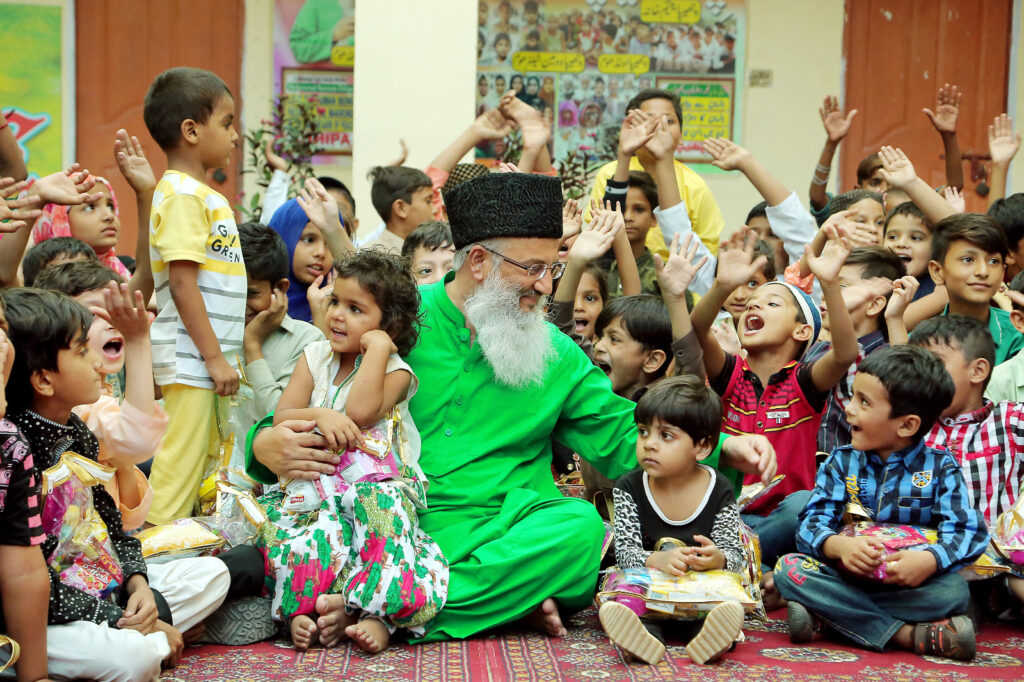
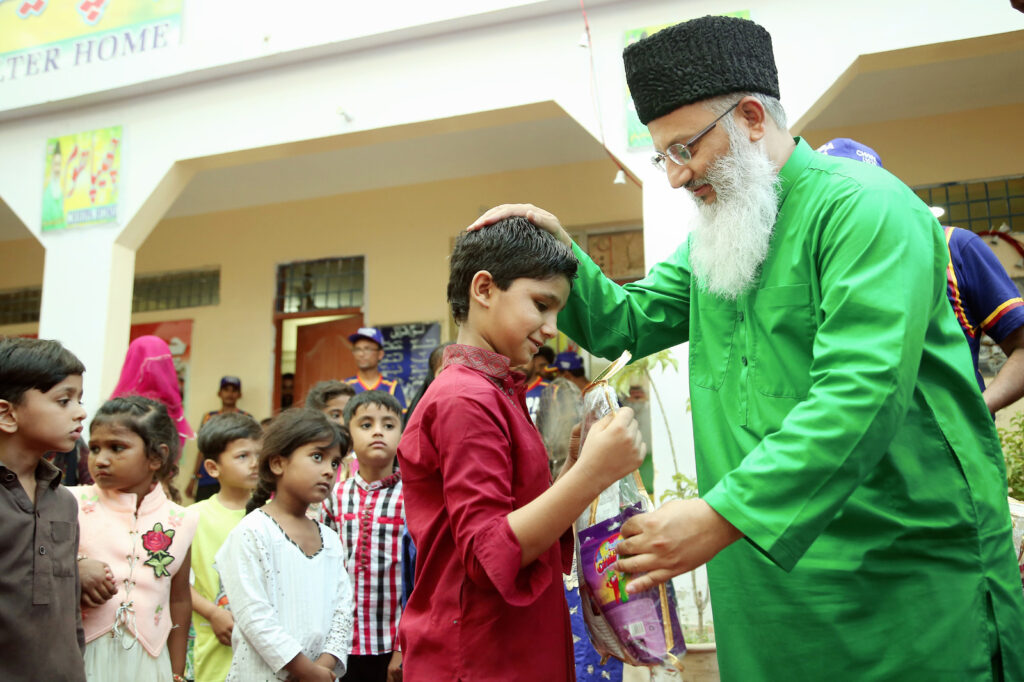
From One Ambulance to a Nationwide Network
Today, Chhipa Foundation’s 1020 helpline is synonymous with urgency. What began with one vehicle now operates hundreds of ambulances—over 500 in Karachi alone—coordinated through a control room that treats every minute as currency. From road accidents to disasters, Chhipa teams arrive swiftly and free of charge, saving countless lives.
But the Foundation long ago expanded beyond ambulances:
• Free Food & Dastarkhwan: Up to 100,000 meals daily.
• Ramadan Kitchens & Ration Packages: Feeding fasting families with dignity.
• Burial Services: Shrouding and burying unclaimed bodies with respect.
• Orphanages & Shelters: Homes for abandoned children and senior citizens.
• Flood & Marine Rescue: Boats, divers, and emergency supplies.
• Small Business Support: Rickshaws, stalls, and tools for self-reliance.
• Education & Health: Scholarships, vocational training, medicines, and even laptops.
• Clean Water Projects: Bottled water, wells, and boreholes in neglected areas.
Among its boldest interventions is the Chhipa Jhoola—cradles outside centers for abandoned infants. Most of these babies are girls, victims of son preference. Rescued, cared for, and adopted legally, they transform tragedy into possibility.
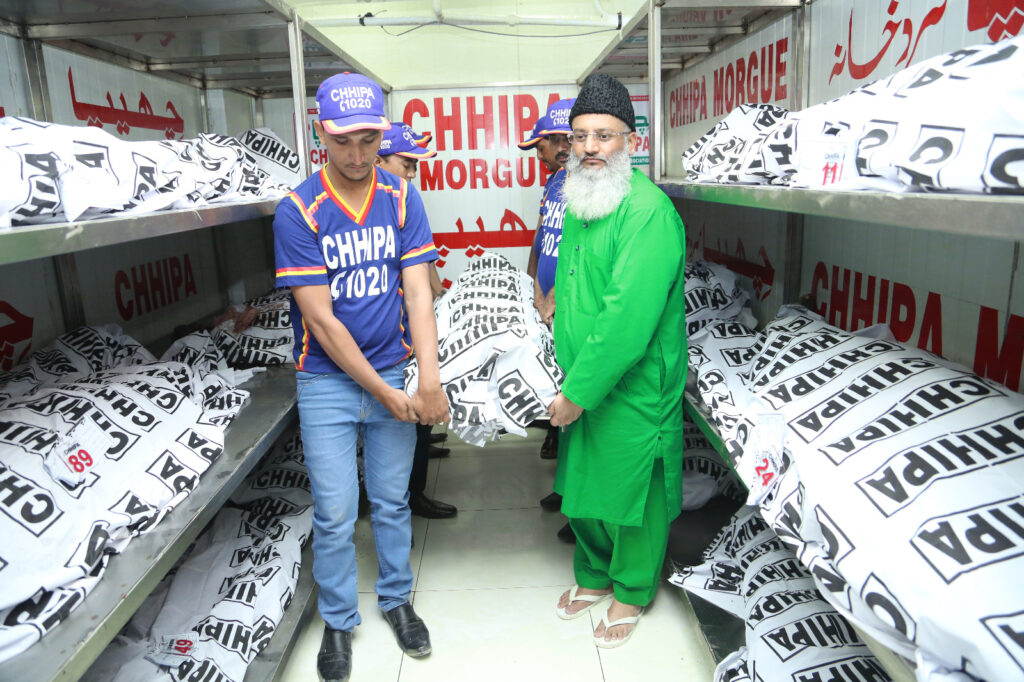
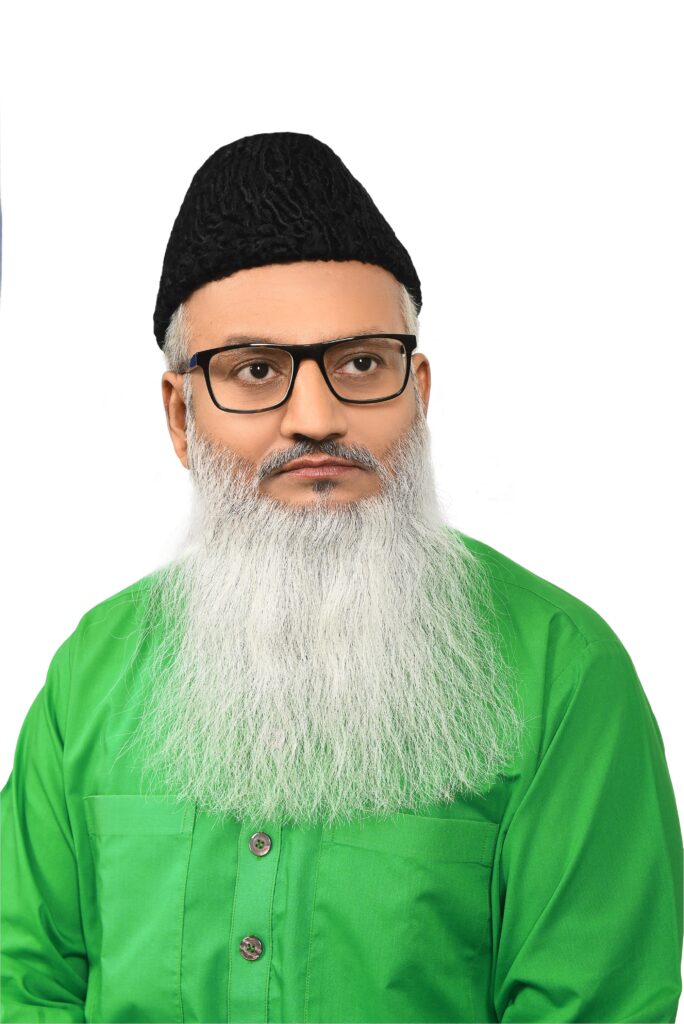
Standing Strong in National Crises
Chhipa’s services shine brightest in crises. His teams braved Karachi’s 1990s violence, reached Balakot after the 2005 earthquake, responded to the 2007 Karsaz bombing, the 2010 super floods, the 2012 Baldia factory fire, and the deadly 2015 heatwave. They managed funerals during COVID-19, reached the site of PK-8303’s 2020 plane crash, and provided flood relief across Sindh in 2022. In 2025, when flash floods struck northern Pakistan, Chhipa personally led 15 days of nonstop relief operations.
Planting Hope for Tomorrow
Beyond relief, Chhipa has embraced climate action. Starting with “One Person, One Plant” in 2019, he launched a nationwide pledge in 2024 to plant one million trees. The first sapling was placed at Faisal Mosque, symbolizing his belief that saving lives today must be matched by safeguarding tomorrow.
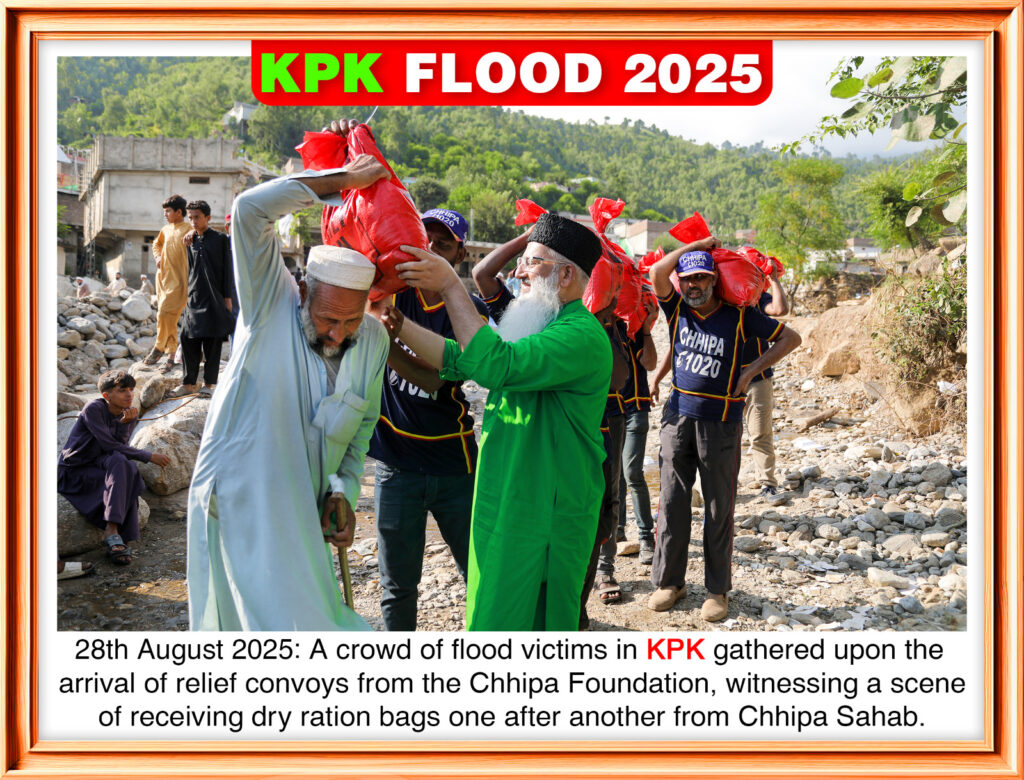
Recognition—But a Different Currency
Honors have followed: Sitara-e-Imtiaz (2013), Hilal-e-Imtiaz (2023), FPCCI Gold Medal, Honorary PhD, and even a Karachi road named after him. Yet, he dismisses medals. For him, the true reward is dua—the whispered blessings of those who receive a ration bag, a cool drink, or a dignified burial for a loved one.
Why the Green Kurta Endures
Few sustain social work for decades because grief is exhausting. Chhipa survived by turning urgency into systems and anonymity into belonging. He still drives ambulances and bathes the unclaimed dead. His philosophy remains simple: Help first, ask later.
Looking Ahead
As poverty deepens and climate shocks intensify, Chhipa Foundation is investing in solar energy, vocational training, wells, and preventive healthcare. It is a model of structured compassion—logistics of dignity, not charity by whim.
Forty years on, Ramzan Chhipa is not just a philanthropist but an institution. His green kurta represents the predictability of mercy—fast, free, and respectful. In the quiet arithmetic of lives saved, infants sheltered, and forests planted, he has kept a promise to Pakistan: that humanity, organized and relentless, can outpace despair.
